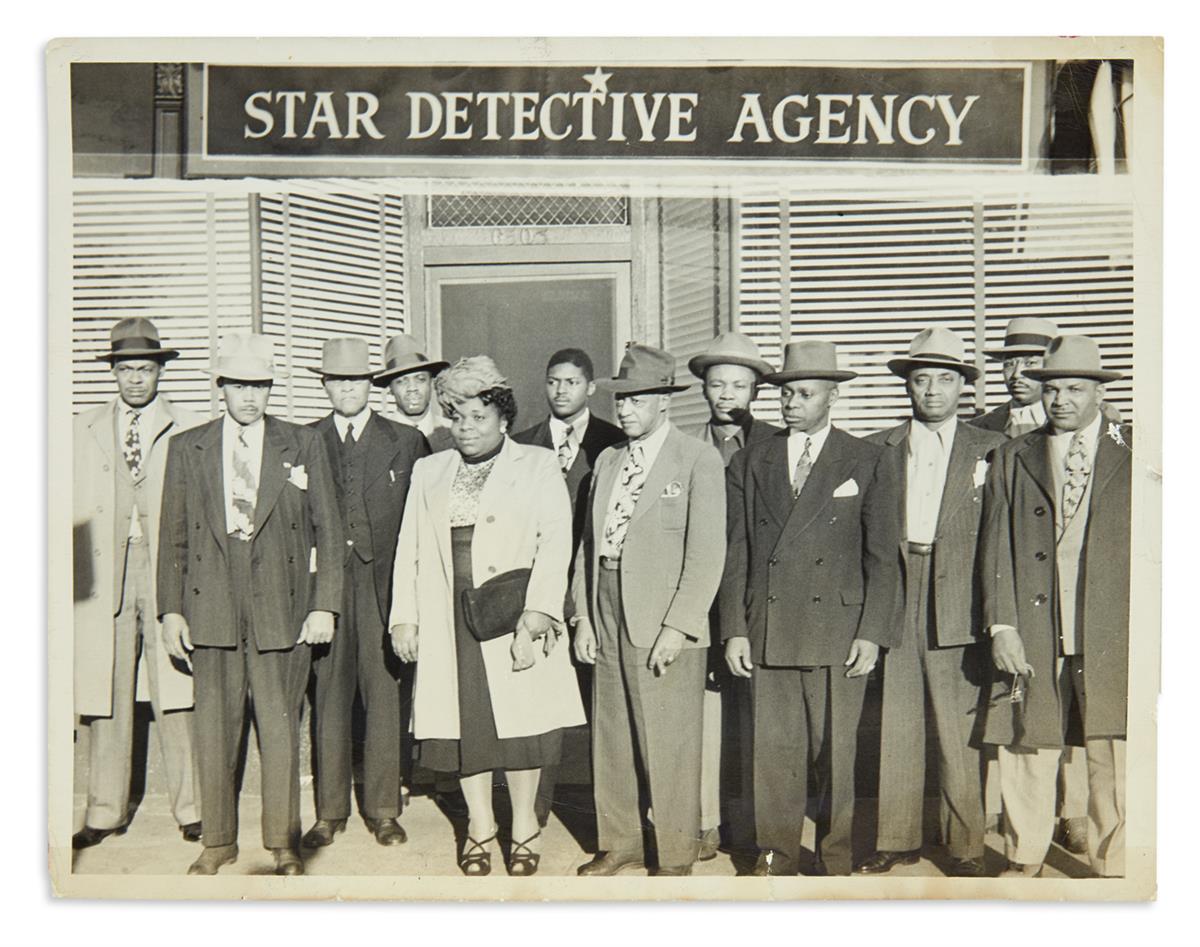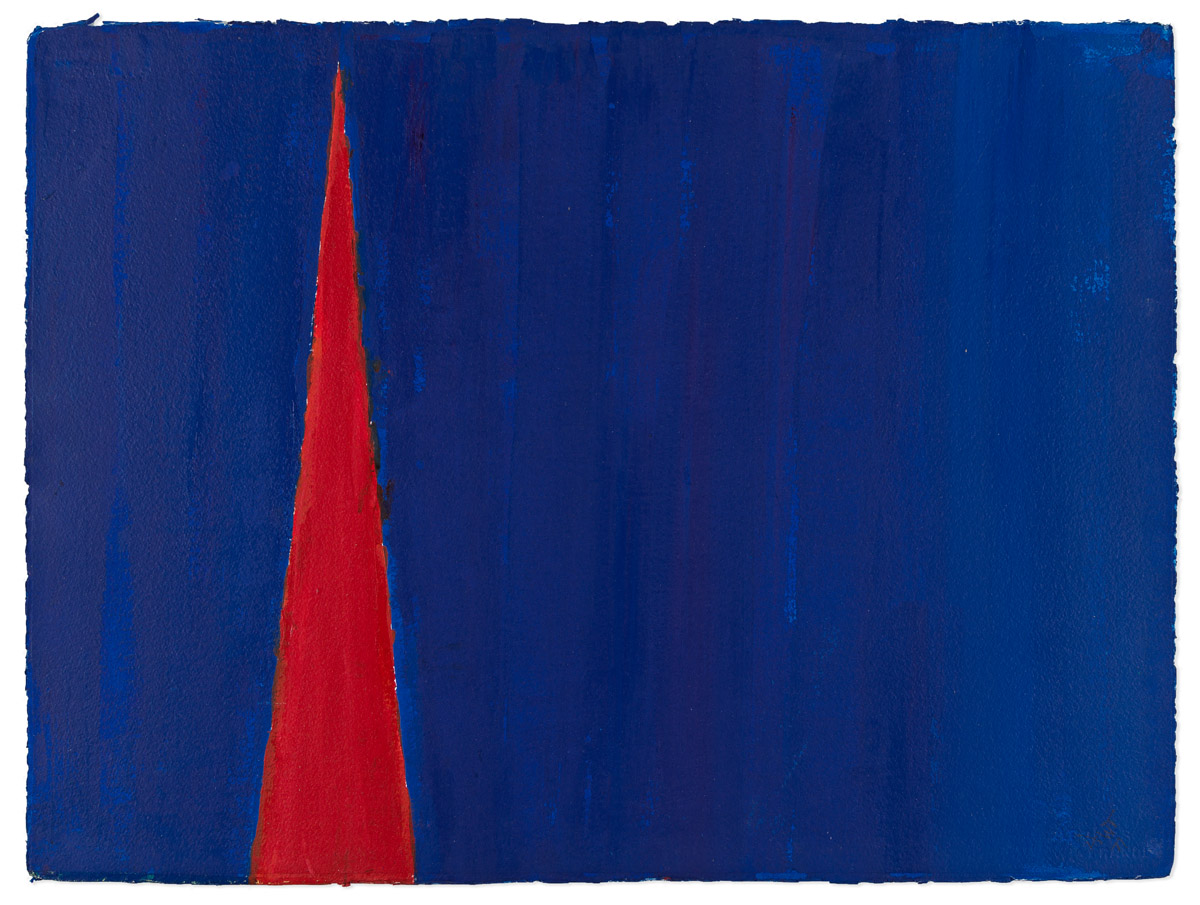Rosa Parks Material At Auction March 20, 2025
“I was amazed & astonished at the youthful appearance and the profound and eloquent speech. . . . I knew I would never forget him.”
Featured in the March 20, 2025, auction of Printed & Manuscript Americana is Rosa Parks’s hand-written recollection of her first meeting with Martin Luther King Jr., along with a wide-ranging collection of memorabilia, including the street sign from when Detroit’s 12th Street was renamed Rosa Parks Boulevard in 1976.

Rosa Parks’s Handwritten Recollection of Her First Meeting with MLK
This unsigned essay recalls an important moment in the history of the civil rights movement: the first meeting of Rosa Parks and Martin Luther King, Jr. on June 19, 1955.

The previous year, King had completed his doctoral coursework at Boston University and came to Montgomery, Alabama, as pastor of the Dexter Avenue Baptist Church. On June 5, 1955, he received his PhD. Two weeks later, the largely unknown young pastor was invited to deliver the keynote address for the statewide NAACP meeting across town at another Baptist church. There, he crossed paths with the branch secretary, Rosa Parks. Their fates would become much more intertwined that December, when Parks refused to surrender her seat on a Montgomery bus. King’s inspiring leadership of the city-wide bus boycott launched his national fame.
Here are the notes written by Parks on their first meeting, in full:
“Dr. Martin Luther King, Jr. Meeting him for the first time shortly after he became the pastor of the Dexter Ave. Baptist Church in Montg’y Ala. Aug. 1955. He came to the Montgomery Branch NAACP meeting as guest speaker on the invitation of Mr. Robert Nesbitt, National Association for the Advancement of Colored People member, and deacon of the Dexter Avenue Baptist Church. I was secretary of the NAACP. Rev MLK was at the church when I came in to the Holt St Bapt. Church where the meeting was held. We spoke to each other without introducing ourselves. I was busy getting chairs placed at the table to open the meeting.
Mr. Nesbitt and other members came. The business was conducted as usual. Mr. Nesbitt introduced this very young man as the pastor of the Dexter Ave Bapt. Church. I was amazed & astonished at the youthful appearance and the profound and eloquent speech delivered by Rev. M.L.K. Jr. I knew I would never forget him. I thought we were very fortunate that he came to Montgomery, Ala. He was 25 years old.”
Some additional notes were apparently intended as insertions to the narrative. She has listed but crossed out the text:
“Holt St. Baptist, age 25 years / Robert Matthews, Pres. / Dexter Av. Bapt. Ch. 11 A.M. Due to his youth, some members were opposed to him as pastor of the aristocratic and historic Dexter Ave Bapt Church.” She then added: “Mr. Matthews had requested Mr. Nesbitt invite MLK to address the NAACP meeting.”
Two Montgomery phone numbers are written in the upper margin of the first page. Parks’s cousin Rotha L. Boswell (1913-1999), whose family used this number from at least 1979 until her death; and Robert D. Nesbitt (1908-2002), a church deacon who led the effort to bring Dr. King to Montgomery and is discussed in the essay, who used this number from at least 1993 through his death. Parks left Montgomery soon after the bus boycott ended and lived in Detroit until her passing in 2005. Parks likely phoned Boswell and Nesbitt to confirm her memories; if she was still in Montgomery, a visit may have been more likely.
Also included in a much shorter note written out by Parks on a sheet of identical lined notebook paper, which reads “Library of Negro Life & History. Dr. MLK Jr w/ fellow Baptist ministers, the Revs. R.D. Abernathy, Fred Shuttlesworth, Wyatt Tee Walker, and Andrew Young organized the SCLC. Dr. King was elected its president.” This describes events in early 1957, during which Parks had no personal involvement. She may have drawn her list of names from “The International Library of Negro Life and History” book series, which launched in 1967.
The composition date of these manuscripts may be impossible to know for certain, but we feel confident that they were written after 1967 and before the death of Rotha Boswell in 1999. The most likely window would seem to be between her 1988 retirement and the publication of her two memoirs in 1992 and 1994. That period is consistent with the style of lined notebook paper seen here. However, this account does not appear in either memoir. In the 1992 “My Story,” she does mention briefly that at the time of her December 1955 arrest, “I did not know Dr. King. I had met him in August 1955 when he was guest speaker at an NAACP meeting, but I didn’t often attend the Dexter Avenue Baptist Church” (page 135).
















![Grace Meschery-McCormack shares about two copies of Fernando de Rojas’s ‘La Célestine,’ including a limited edition copy illustrated by Pablo Picasso.
At auction April 22. Learn more about the works at the link in our bio.
#Rarebooks #rarebookdealer #antiquarianbooks #auctions
_______________________________________
Music Credit:
Schubert - Piano Quintet in A major ‘The Trout’, D. 667 - IV. Andantino – Allegretto
Music provided by Classical Music Copyright Free on Youtube [https://tinyurl.com/visit-cmcf]
Watch: • Schubert - Piano Quintet in A major ‘...]](https://scontent-iad3-1.cdninstagram.com/v/t51.75761-15/491443494_18499096345036585_5935932878956098058_n.jpg?stp=dst-jpg_e35_tt6&_nc_cat=107&ccb=7-5&_nc_sid=18de74&_nc_ohc=Kjf2AzWLeY8Q7kNvwEQYrfY&_nc_oc=Adn_Uzi4Nwl1nHCsTtuLCIkthuYOWwKedtxovtcdMSYhpbHQGScR7QSzzN2rD0v-khE&_nc_zt=23&_nc_ht=scontent-iad3-1.cdninstagram.com&edm=AM6HXa8EAAAA&_nc_gid=uqaUTU7TNl0fL2fUFM-Rzw&oh=00_AfLr5FzDRrl_EYRG2aj17zTY5TUhadlgDzJHCYGMED7CKw&oe=68237891)


